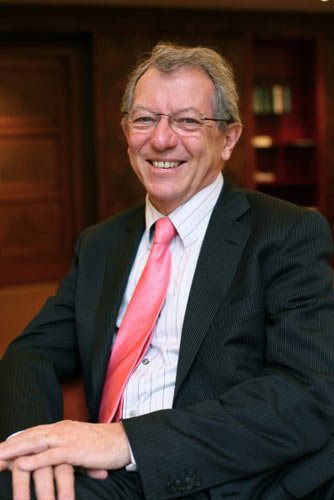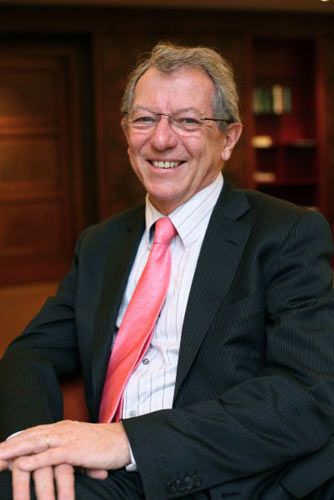untapping the investment opportunities around resource management
Published by Gbaf News
Posted on June 29, 2012
5 min readLast updated: January 22, 2026

Published by Gbaf News
Posted on June 29, 2012
5 min readLast updated: January 22, 2026

Nobel prize-winning economist Amartya Sen and film director James Cameron will join President Bill Clinton at Oxford University this summer (12-13 July) for a ground-breaking forum on resource scarcity and volatility– ensuring continued access to food, energy and water as demographics rapidly change. The primarily investor audience will hear about the financial advantages for businesses who seize the opportunities generated by a shift towards greater efficiency.
This unique forum will address the reality of the growing demand for food, water and energy, as demographic shifts in wealth and age, particularly in the BRICS markets, bring increasing pressure on these finite resources. Businesses and investors must consider the demands that an additional 3bn middle class consumers, forecast for 2030, will create, as well as the huge commercial advantages to be gained by finding innovative solutions to resource scarcity. 
Leading figures from business and finance will attend the conference to understand the risks and opportunities surrounding these critical issues, including John Brock, CEO and Chairman of Coca-Cola Enterprises, Peter Brabeck, Chairman of Nestlé, Jeremy Grantham, Founder of one of the world’s largest investment funds, GMO, and Rachel Kyte, Vice President of Sustainable Development at the World Bank.
Amory Lovins, named by Time magazine as one of the world’s 100 most influential people, will also be part of the event, alongside the Rt Hon David Miliband MP, former UK Foreign Secretary, David Nabarro, the UN’s Special Representative on Food Security and Nutrition, and Lord Peter Mandelson, former European Trade Commissioner and Chairman of the Global Counsel. Other participants include award-winning journalists Jonathan Dimbleby (BBC), James Harding, Editor of the Times, and John Micklethwait, Editor of the Economist.
A particular highlight of the event will be a special presentation at Oxford University’s Ashmolean Museum by James Cameron, the internationally acclaimed film director and explorer, and Sir David Attenborough, eminent broadcaster and environmentalist. President Bill Clinton will give the closing keynote address.
Business leaders such as Jean-Marc Huet, CFO of Unilever, will explain why they are actively decoupling profitability from resource use, and how efficiency in resource management can bring huge savings and profitability.
Examples abound of companies that have already seen the positive results of this longer-term thinking. IBM, the technology and consulting giant, not only saved $27 million by applying smarter management techniques across its own facilities, it took this knowledge and sold it to customers, driving new business. It recently announced a partnership in India that will help building owners lower energy costs. GE and Philips have also expanded their business by capitalising on their own expertise in this way.
Similarly, the Carbon Disclosure Project reported that companies that strategically cut emissions were more than twice as profitable as those that did not.
By re-framing the debate from a financial perspective, Re|Source 2012 hopes to engage the corporate and investor community who have with the power and influence to enact real change. And when you look at the figures it is undoubtedly this community that has the biggest role to play: out of the world’s freshwater supply, 92 per cent is used by agriculture and industry, compared to just eight per cent in domestic consumption. Meanwhile, out of the world’s top 100 economies, more than 40 are companies.
Topics for discussion at the conference will include: how tomorrow’s economies can leap-frog the resource inefficiencies inherent in more developed economies; how businesses can help governments re-design and deliver more long-term solutions; and how capitalism will be forced to change in a resource-capped world.
Participants will also discuss the need to shift our reliance away from technological innovation as a solution to these issues, and instead explore regulatory, legal, financial and accounting innovations that are set to radically change the way we live and do business.
Re|Source 2012 is a joint initiative hosted by Oxford University and its Smith School of Enterprise and Environment in co-operation with The Rothschild Foundation.
Sir David King, Co-Director of the event and former chief scientific adviser to the UK government said: “There is no doubt that our current model of growth is unsustainable – and these pressures are only set to deepen in future years. CEOs and investors must realise now more than ever that profitability need not rely on increased resource use. The answer lies in understanding that capitalist and environmental priorities are not in opposition, but rather inextricably linked. There are huge opportunities at stake here for the financial community.
“Ultimately it is this community that has the power to come together with governments and kickstart the necessary investments in the green economy. It is vital that companies address these issues head-on and understand that resource efficiency and longer term thinking are potent drivers of shareholder value.”
Re|Source 2012 hopes to spark change by bringing together 250 of the world’s most informed and influential across business, politics, finance, academia and the military – those who are currently attending represent more than $4tn in assets – and presenting a compelling financial case for solving these issues. The conference will also explore viable, commercial and proven solutions towards a sustainable future, which currently are not being communicated on a global scale.
Sir David continued: “The way in which business leaders respond to these issues will shape the competitive landscape over the next 20 years and beyond. Through Re|Source 2012 we are hoping to move away from the scaremongering and negative perceptions of the past and instead generate new ways of thinking about these critical global issues.”
For more information please visit www.resource2012.org and follow us on Twitter https://twitter.com/#!/resource2012
Explore more articles in the Investing category











